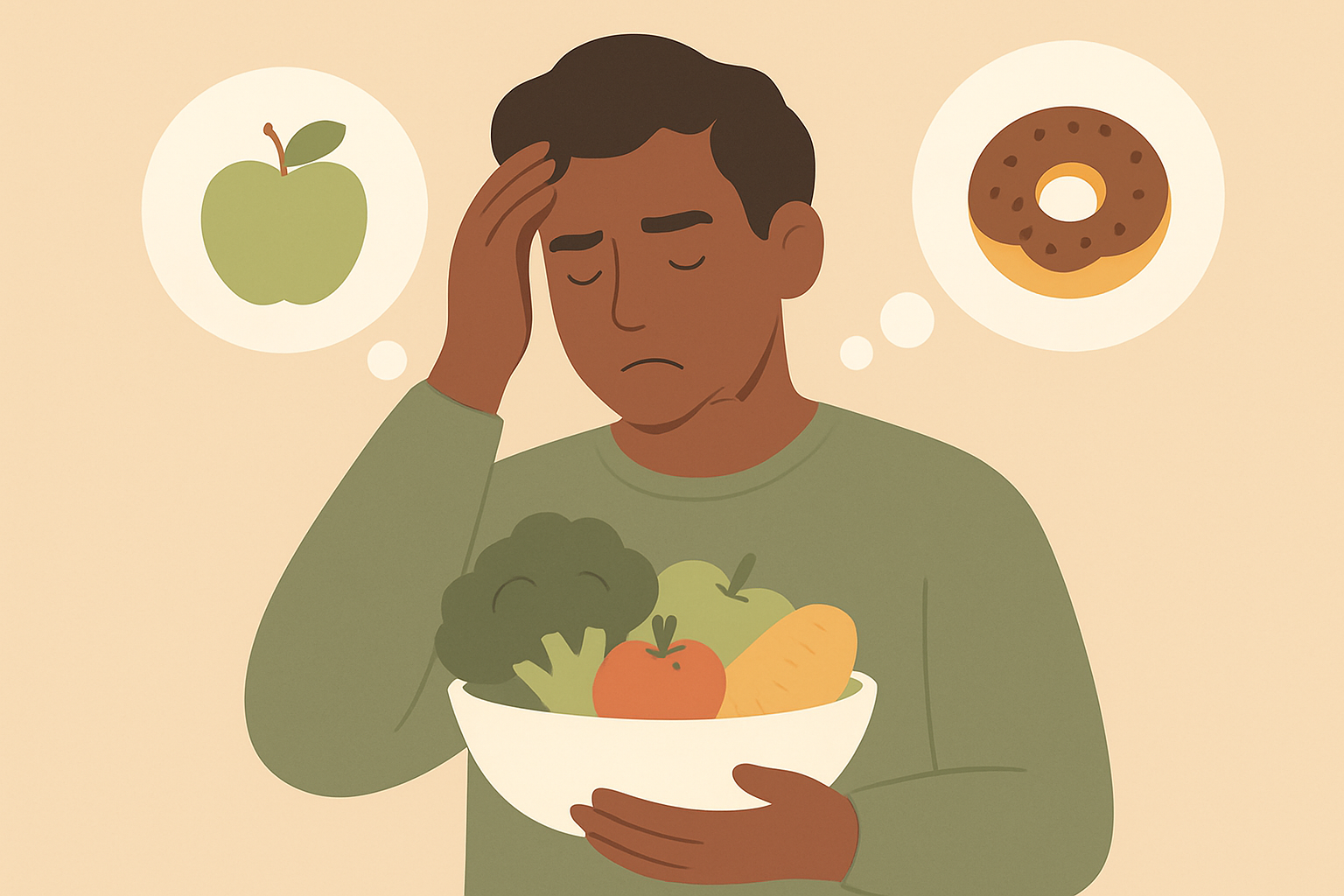
What is Emotional Eating?
Emotional eating is the act of consuming food in response to your feelings, rather than hunger. It's a coping mechanism many people use to handle emotions such as stress, boredom, sadness, or happiness. Understanding this phenomenon is the first step in managing it effectively.
- Stress and Anxiety: Often triggers cravings for sweet or high-calorie foods.
- Boredom: Eating can fill the time or distract from a lack of activity.
- Happiness and Celebration: Events and achievements are frequently associated with indulgent foods.
How Does Emotional Eating Work?
When emotions influence eating behaviors, it's often about seeking comfort or a distraction. The brain releases dopamine as a reward when consuming enjoyable food, temporarily alleviating negative feelings. However, this can lead to a cycle of repeated behavior whenever distressing emotions arise.
- Dopamine Release: Provides a short-term feeling of relief or pleasure.
- Habit Formation: Over time, the brain learns to associate certain emotions with food.
- Cycle of Guilt: Often leads to feelings of guilt or shame, exacerbating emotional stress.
Strategies to Combat Emotional Eating
Breaking free from emotional eating does not mean going on a restrictive diet. Instead, it's about building mindful and intentional eating habits. Here are some strategies that might help:
- Identify Triggers: Pay attention to what emotions lead you to snack; keeping a journal can help.
- Practice Mindful Eating: Focus on the taste, texture, and aroma of your food to enhance satisfaction.
- Find Alternative Comforts: Engage in activities such as reading, walking, or practicing yoga when emotions run high.
The Role of Stress Management
Since emotional eating is often linked to stress, learning how to manage stress is crucial. According to Harvard Medical School, stress can significantly disrupt eating patterns 1. Techniques such as mindfulness meditation, exercise, and leisure activities can reduce stress levels.
- Mindfulness Exercises: Engage in short, daily mindfulness practices.
- Physical Activity: Regular exercise can relieve stress and boost mood.
- Leisure Activities: Spend time doing things you enjoy to distract and calm your mind.
Building Resilience for Better Control
It isn't just about saying no to emotional eating; it's about building resilience against those triggers. Embrace self-compassion and flexible thinking to avoid all-or-nothing thinking that can hinder your progress.
- Self-Compassion: Treat yourself kindly if you slip up—it's part of the process.
- Flexible Thinking: Avoid all-or-nothing thinking and recognize that every small effort counts.
- Inner Critic Management: Learn how to manage your inner critic to better handle emotional challenges [dealing-with-inner-critic].
Frequently Asked Questions
What triggers emotional eating?
Emotional eating can be triggered by various emotions including stress, boredom, and even happiness. Identifying your personal triggers is key to managing it effectively.
Can mindful eating help with emotional eating?
Yes, mindful eating can help by encouraging you to focus on your food's sensory experience, which can increase satisfaction and reduce mindless eating.
How can I manage stress to reduce emotional eating?
Stress management can be achieved through mindfulness exercises, physical activity, and engaging in leisure activities, all of which can help calm your mind and reduce emotional eating.